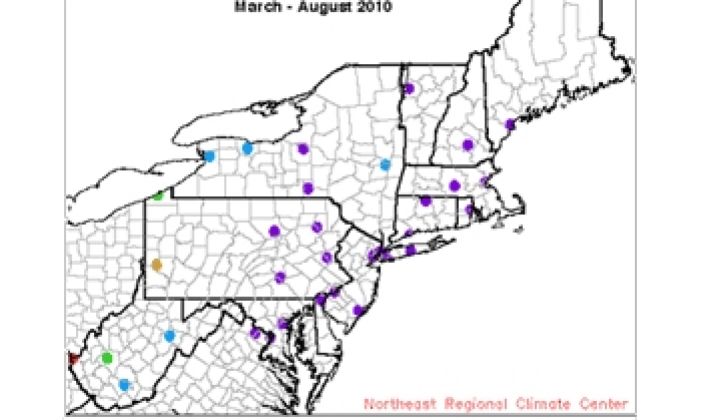The majority of the cities in the Northeast have suffered their hottest summers on record. Most of these metropolitan hubs haven't seen temperatures this high since 1921 or 1991, according to Northeast Regional Climate Center.
Well, I guess that explains why I've been sweating so much lately. There comes a point when I'm sitting in my apartment and the heat becomes unbearable, so I crank on the air conditioner. That's exactly the moment when the expensive utility bill becomes an afterthought.
Jeremy Eaton, vice president of Energy Solutions at Honeywell Building Solutions, reassured me that what I'm doing is completely normal. In general, people are putting their comfort before anything else -- which means if they feel hot, they are going to turn on the air conditioning.
Eaton said a recent Honeywell survey showed that two-thirds of American consumers chose comfort over cost savings and don't bother thinking about how they might be conserving energy. After phoning more than a thousand adults ages 18 and older during one week in August 2010, Honeywell had the hard data to back up this rather obvious conclusion.
In fact, the bills reflected the summer heat pattern, which is why 60 percent of all consumers reported an increase in their utility bills. And half that number -- 30 percent of the public -- claimed that it was worth paying more just to be comfortable.
There was some gender-based discrepancy in the responses, however. Females were twice as likely to claim higher bills and more likely to "cringe" at the thought of receiving a higher energy bill next month.
But instead of fretting about costly energy bills this summer, there is a way to sidestep it. Honeywell offers some tips on how to save:
- Invest in a programmable thermostat. Running your air conditioning at a low temperature 24/7 is cheaper than turning the AC on and off.
- Think of your energy bill as a debit card, not a credit card. Don't binge on cooling off. Fifty percent of your bill goes to cooling and heating. With smart meters, getting real-time data will be easier.
- Use high-powered appliances after 10 p.m. Electricity is cheaper at night. It kind of works like cell phone nighttime minutes, but in this case it is energy currency. (See Why Energy Bills Should Look Like Your Cell Phone Plan.)
- Check out energy-saving programs from your utility. Look into what your utility is offering in the way of demand response programs and appliance rebates.
- Get the latest information. Don't live in the dark ages; find out what new technology is coming out that can help you save energy (and money).
What's more, Eaton broke the news to me that the multi-tenant high-rise I live in probably only has one meter, and therefore, one massive monthly electricity bill. The landlord splits up the charge, so while I might be doing the environment a favor by conserving on my use of the AC, it might not matter in terms of billing, because I share the costs with hundreds of other people in my building.
"Right now, energy prices aren't high enough to drive customer behavior, but I think it will change going forward," Eaton said. Clearly, in this heat wave, comfort remains the primary prerogative.



